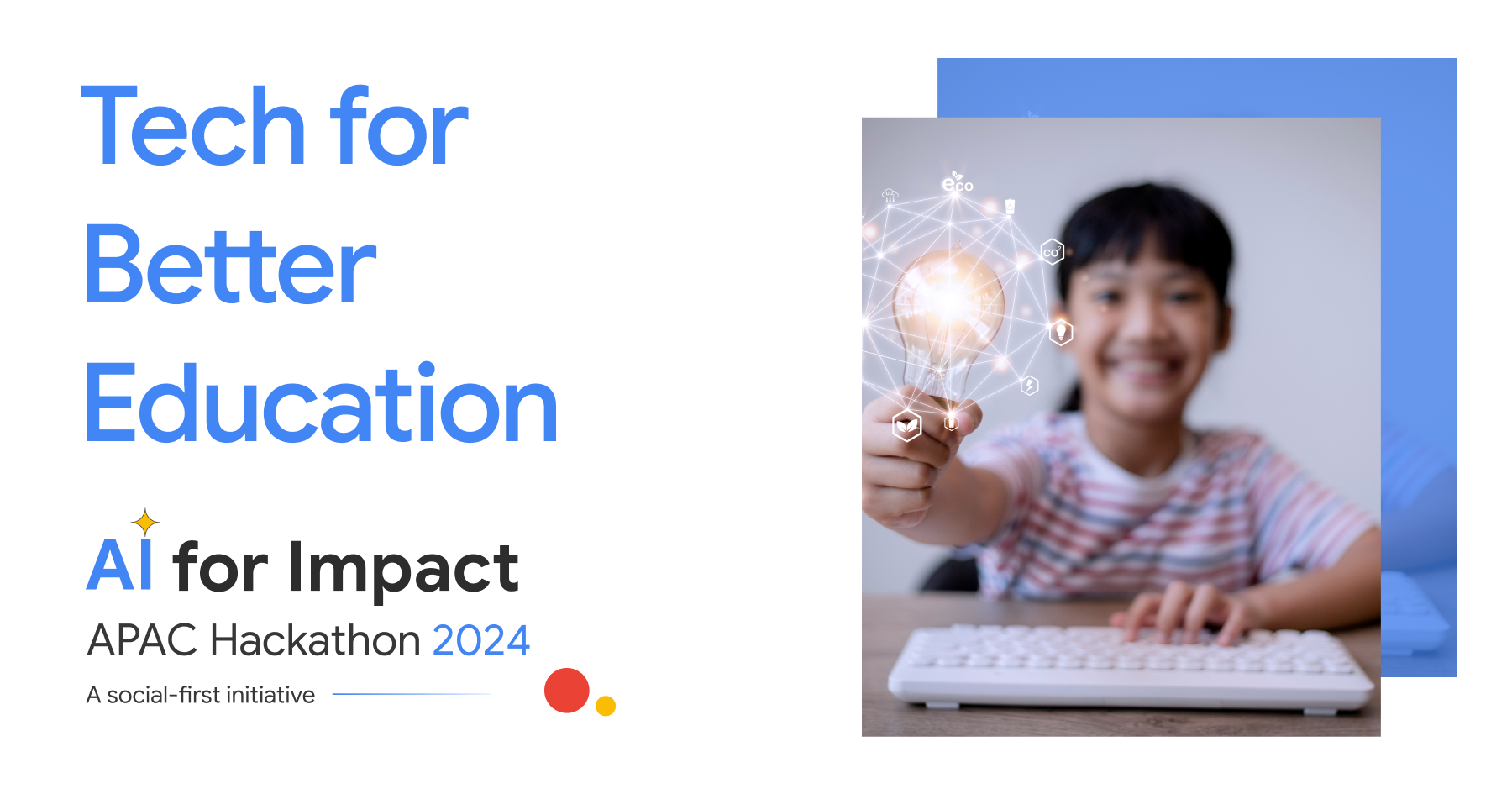Tech for Better Education: Enhancing Opportunities for Underrepresented Communities
 Krusnansh Gupta
Krusnansh Gupta
In today’s digital age, the promise of technology to transform education is undeniable. However, disparities in access to these advancements persist, particularly among underrepresented communities. Studies indicate that nearly 20% of school-aged children in the Asia-Pacific region lack access to the internet, limiting their educational opportunities. This digital divide not only affects the accessibility of educational resources but also hinders inclusivity and personalization in learning.
Don’t miss your chance to make a difference — register here: https://bit.ly/3NTkBEE
Addressing the Challenges of the Current Education System
The existing educational framework faces significant hurdles in providing equal opportunities for all students, especially those with learning disabilities. Recent statistics highlight that approximately 15% of students worldwide are identified as having some form of learning disability. Unfortunately, many educational institutions lack the resources and training necessary to adequately support these students.
Accessibility and Inclusivity: A report by the World Bank shows that students from low-income backgrounds are twice as likely to drop out of school compared to their higher-income peers. This stark statistic emphasises the need for innovative solutions that enhance accessibility and inclusivity in education, particularly for marginalised groups.
Personalised Learning Needs: Teachers often face challenges in adapting their teaching methods to meet the diverse needs of their students. Research from the OECD indicates that around 40% of teachers feel unprepared to support students with diverse learning requirements. This gap in teacher training leads to a lack of personalised attention for students who may require additional support.
Take the first step towards Solving these challenges by registering now

Harnessing AI for Personalized Education
Artificial Intelligence (AI) holds tremendous potential to revolutionise the educational landscape, particularly for students with learning disabilities. By developing AI-powered educational tools, we can create personalised learning experiences tailored to each student’s unique needs and pace.
Adaptive Learning Tools: Imagine an educational platform that analyses individual student performance and adapts in real time to provide tailored resources and exercises. Such tools can ensure that students receive the right support at the right time, fostering a more inclusive environment. For example, AI can identify areas where students struggle and offer customised exercises to improve their skills, thereby enhancing their overall learning experience.
Empowering Educators: AI can also play a crucial role in supporting teachers by streamlining administrative tasks and providing valuable insights into student performance. With AI, educators can focus more on teaching and less on paperwork, ultimately improving instructional quality. This not only benefits students but also empowers educators to deliver more impactful lessons.
Join the AI for Impact Hackathon
Join the AI for Impact Hackathon and compete for:
Cash Prizes: $20,000 up for grabs
Hands-On AI Workshops: Learn directly from Google’s AI experts
Professional Mentorship: Guidance from the Google for Startups team
Exclusive GCP Credits: Special Google Cloud credits for top teams
VIP Event Passes: Access to select Google events
Register here to know more: https://bit.ly/3NTkBEE
Reference
Subscribe to my newsletter
Read articles from Krusnansh Gupta directly inside your inbox. Subscribe to the newsletter, and don't miss out.
Written by
